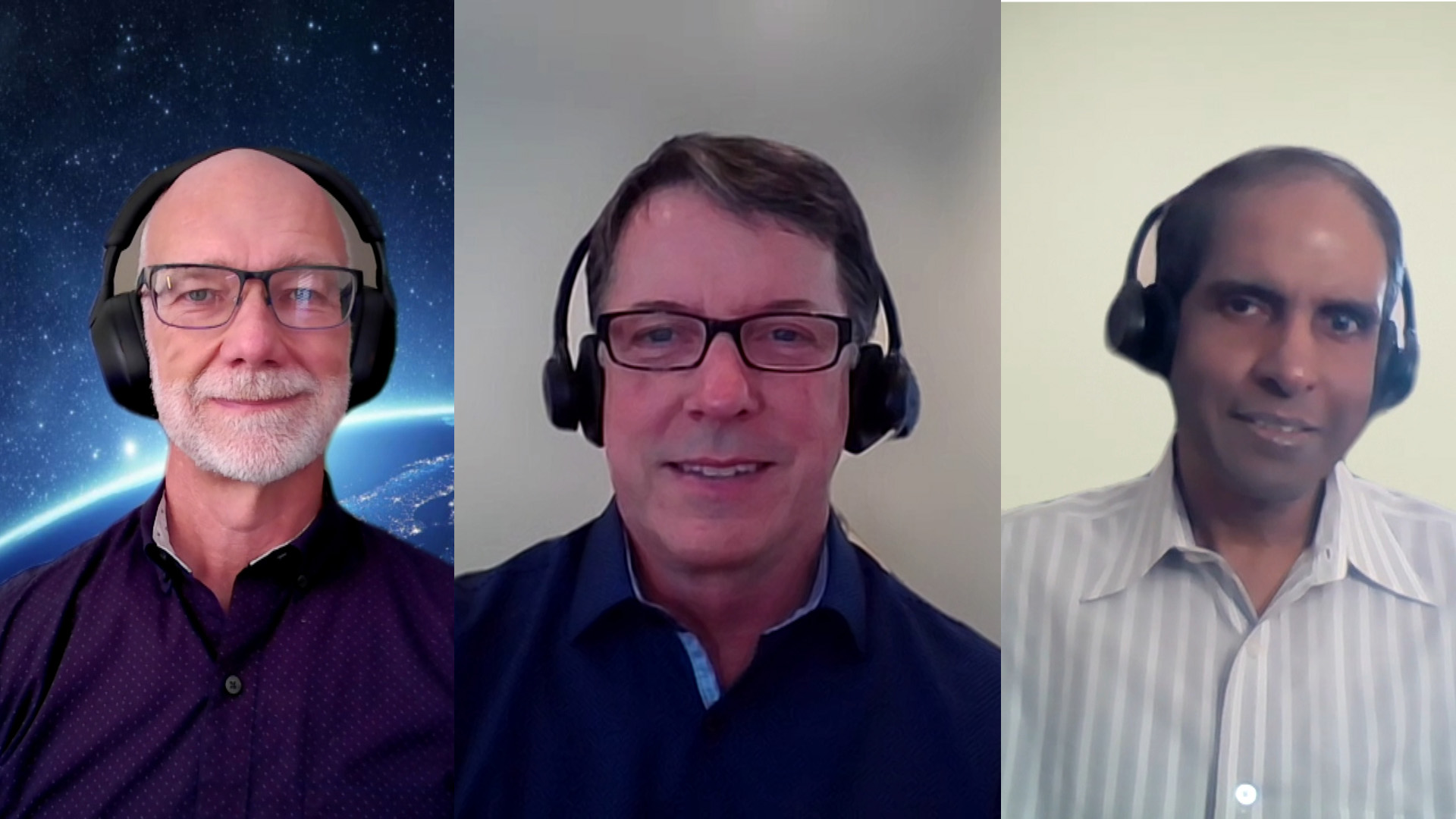 INFRA
INFRA
 INFRA
INFRA
 INFRA
INFRA
As high-performance computing components, such as servers and graphical processing units, get more capable, they consume more power.
Managing these increasingly power-hungry systems and maintaining sustainability requires a combo of efficient power-draw management and powerful cooling. These improvements are already being delivered in accumulating fractions by the likes of Dell Technologies Inc. and Intel Corp.
“It’s a bunch of incremental improvements in a variety of areas, from power delivery to the designs of the system so that we can more efficiently move air through there,” said David Hardy (pictured, middle), data center solutions — strategy and business development at Dell. “It’s a lot of refinement; it’s a continuous improvement over generations that adds up to big differences at the system level.”
Hardy; Tim Shedd (left), engineering technologist, office of the chief technology information officer at Dell Technologies; and Mohan Kumar (right), fellow, data center and artificial intelligence at Intel Corp., spoke with theCUBE industry analyst John Furrier at the ISC High Performance event, during an exclusive broadcast on theCUBE, SiliconANGLE Media’s livestreaming studio. They discussed how efficiency and cooling improvements are driving the sustainability discussion in HPC. (* Disclosure below.)
Technology is constantly improving. Part of that improvement is managing the impact that new advancements leave on our way of life. With cooling and managing HPC systems, the trick is doing so economically and sustainably no matter the particular solution, according to Kumar.
“When we talk about cooling solutions especially, it’s not about cooling with or cooling with liquid. The question is about cooling economically and sustainably with any given solution,” he said. “You can always come up with air-cooling solutions, but the problem is the power of the cooling solution will put a dent in your pocketbook. And that’s the point where you cut over into technologies, like liquid or immersion cooling.”
On the sustainability aspect, people would still gravitate to water cooling even if increased power consumption wasn’t the case. This is because of its magnitudinous effect compared to regular air cooling systems, Kumar added.
Matching the cooling flexibly according to changing heat and power loads is key to being efficient. And this goes back to basic engineering and thermodynamics principles, according to Shedd.
“When you are placing a cold plate — which is just a little box typically with a copper base — and you’re running water through that, you’re putting that really effective cooling right on the heat source,” Shedd explained. “Everything else in the chassis can typically be cooled pretty efficiently with relatively low-powered fans. So you’re able to significantly decrease the total energy required to cool while enabling chips that are drawing well past a thousand watts.”
On the discussion of standards, the existence of one-off designs has to be overseen by unified government standards, Shedd added.
“There are efforts going on from open communities in the United States, such as AHRI, which is the Air-Conditioning, Heating and Refrigeration Institute,” he said. “They’re all involved now in developing liquid-cooled equipment standards that will open up the ecosystem and make it a lot easier for the components to be interchanged and the ideas to open up.”
Here’s the complete video interview, part of SiliconANGLE’s and theCUBE’s coverage of the ISC High Performance event:
(* Disclosure: Dell Technologies Inc. sponsored this segment of theCUBE. Neither Dell Technologies nor other sponsors have editorial control over content on theCUBE or SiliconANGLE.)
THANK YOU